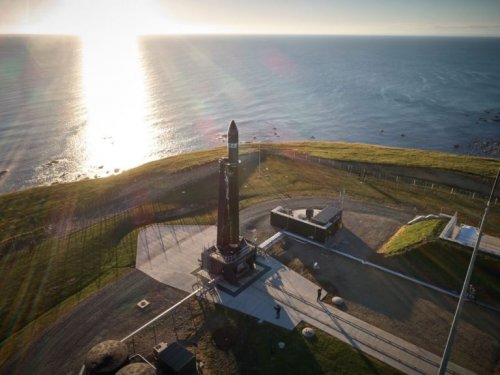Rocket Lab Announces Reusability Plans For Electron Rocket
Rocket Lab details plans to increase launch frequency by recovering and re-launching Electron’s first stage.
Huntington Beach, California. 6 August 2019 – Rocket Lab, the global leader in dedicated small satellite launch, has revealed plans to recover and re-fly the first stage of its Electron launch vehicle. The move aims to enable Rocket Lab to further increase launch frequency by eliminating the need to build a new first stage for every mission.
Work on Rocket Lab’s Electron first stage reuse program began in late 2018, at the end of the company’s first year of orbital launches. The plan to reuse Electron’s first stage will be implemented in two phases. The first phase will see Rocket Lab attempt to recover a full Electron first stage from the ocean downrange of Launch Complex 1 and have it shipped back to Rocket Lab’s Production Complex for refurbishment. The second phase will see Electron’s first stage captured mid-air by helicopter, before the stage is transported back to Launch Complex 1 for refurbishment and relaunch. Rocket Lab plans to begin first stage recovery attempts in the coming year.
A major step towards Rocket Lab’s reusability plans was completed on the company’s most recent launch, the Make It Rain mission, which launched on 29 June from Launch Complex 1. The first stage on this mission carried critical instrumentation and experiments that provided data to inform future recovery efforts. The next Electron mission, scheduled for launch in August, will also carry recovery instrumentation.
Rocket Lab Founder and Chief Executive Peter Beck says reusing Electron’s first stage will enable Rocket Lab to further increase launch frequency by reducing production time spent building new stages from scratch.
“From day one Rocket Lab’s mission has been to provide frequent and reliable access to orbit for small satellites. Having delivered on this with Electron launching satellites to orbit almost every month, we’re now establishing the reusability program to further increase launch frequency,” says Mr. Beck. “Reusing the stage of a small launch vehicle is a complex challenge, as there’s little mass margin to dedicate to recovery systems. For a long time we said we wouldn’t pursue reusability for this very reason, but we’ve been able to develop the technology that could make recovery feasible for Electron. We’re excited to put that technology into practice with a stage recovery attempt in the coming year.”
ENDS
Images and video content:

www.dropbox.com









